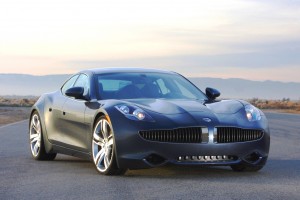There’s a lot riding on next year’s highly-publicized launch of the Chevrolet Volt. General Motors’ new plug-in technology could revolutionize what and how Americans drive – or it could prove a resounding dud.
But a growing number of manufacturers are betting on some form of “electrification,” the transformation of the traditionally mechanical automotive drivetrain into a battery-powered or battery-assisted system that can improve fuel economy and reduce emissions. Virtually every automaker is working on some sort of battery-based technology, including GM’s arch-rival, Toyota, which plans to launch a plug-in hybrid version of its popular Prius.
The transition won’t be easy, nor will it be cheap. An entire industry is emerging to supply the batteries, motors, controller systems and other technology needed for tomorrow’s battery vehicles. There’ll also be need for charging stations, and for an upgraded national electrical grid.

The move to electric propulsion could create opportunities for new players like Fisker Automotive, which plans to put its Karma plug-in on sale next year.
But that could be just the opportunity the nation – and, in particular, the Motor City – needs. A conference scheduled to take place in Detroit, from October 19th through the 21st will focus on the challenges of making a business, and a business case for plug-in hybrid technology.
“We really want to talk about the business opportunities that arise around Plug-in Hybrids, the vehicles, the grid and the infrastructure, what are the new opportunities, where are the batteries coming from, what communities will benefit, and where investors should be putting in money,” says Britta Gross, General Motors’ Director of Global Energy Systems, and chair of the conference, “The Business of Plugging In.”
There’s a general consensus that battery technology will become an essential part of tomorrow’s automobiles. “The common thinking,” says Audi’s global marketing director, Peter Schwarzenbauer, is that by “2030 (the industry will) have half of the market go electric.”
That’s kicking off a major global battle as various nations gear up to dominate electric propulsion technology. Right now, Asian nations, like China, Japan and South Korea, lead when it comes to producing advanced lithium batteries. But the Obama Administration is trying to regain control with a $2 billion package of incentives announced earlier this year.
Gross says the Plug-in conference will focus on ways to get that money – and the businesses and jobs it creates – into Michigan, which desperately needs to re-tool for the automotive future. But the conference will also look at how the rest of the country can benefit from such investments.
“We’re birthing an industry,” said Gross, “and we need to see how much of this opportunity we can bring to the region.”
Surprisingly, while there are plenty of challenges building plug-in vehicles, Gross believes that “the real challenge is creating the infrastructure needed to support” PHEVs and pure battery vehicles. There’ll be the need to set up charging stations at home, at the workplace and in public facilities, whether parking lots or dedicated service stations, the GM executive stresses.
Making that happen will require a partnership between government, the auto industry and the nation’s electric utilities, experts stress. But while “Some utilities want to take care of everything,” once the first vehicles start hitting the road, others have shown little interest in participating in the transformation, Gross cautions.
Sponsors hope the Plug-in conference will help nudge them into action, as well.
The 3-day conference already has several hundred participants signed up, Gross notes, and besides GM, the event is being actively supported by a variety of suppliers and major automakers including Toyota and Ford – whose Chairman Bill Ford will address the conference – as well as start-ups, such as Fisker Automotive, which hopes to put its Karma plug-in sports car into production in 2010.


